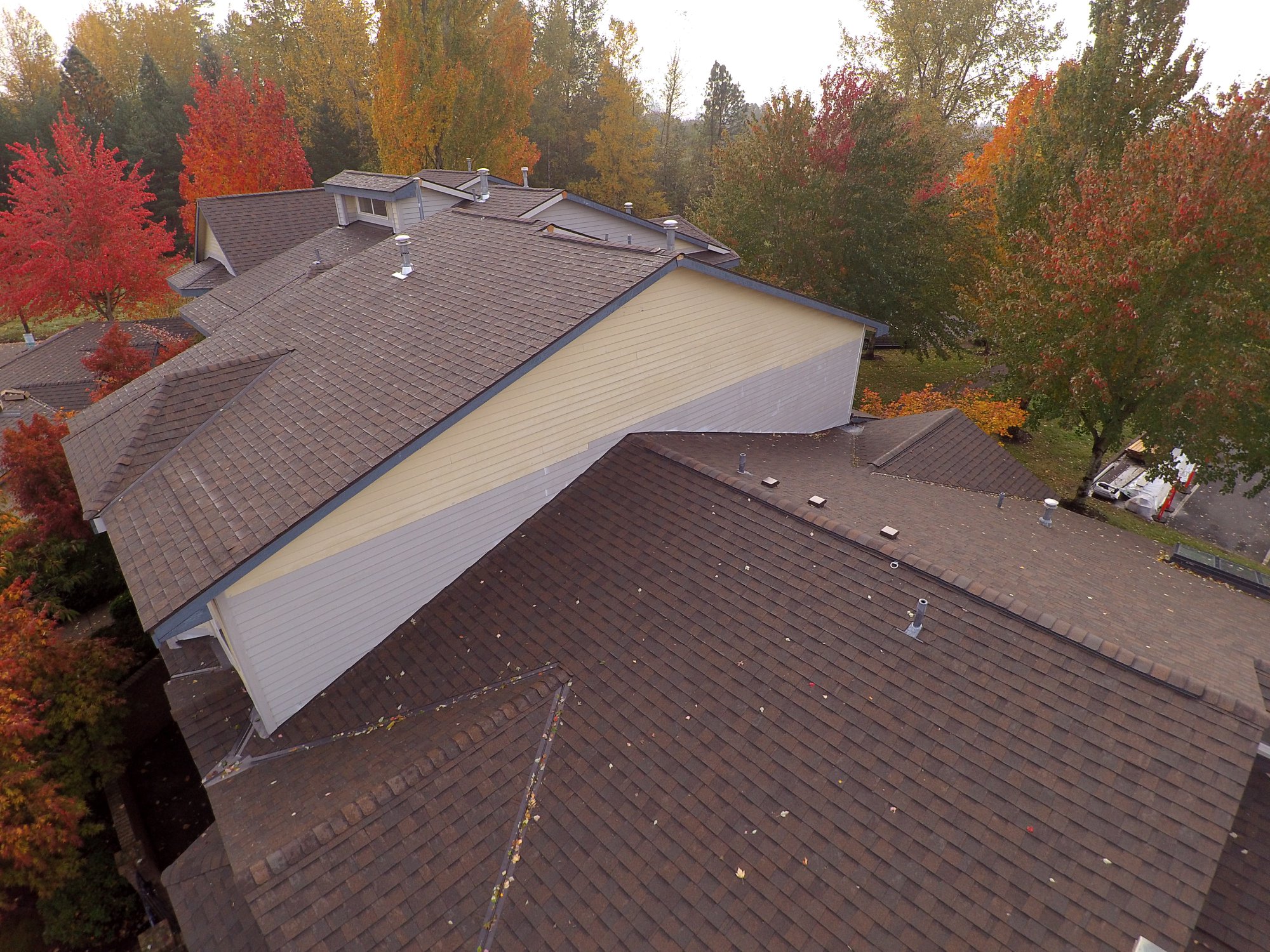Tile Roofing vs. Cedar Shakes: Which Option Fits Oregon’s Climate?
When choosing a roofing material for your Oregon home, the climate is one of the most important factors to consider. Oregon’s weather includes wet winters, cool springs, and occasional dry, hot summers. Two popular options—tile roofing and cedar shakes—offer distinct advantages and challenges. Let’s break down how these materials perform in Oregon’s unique climate to help you make the best choice for your home.
Tile Roofing: Durable and Low-Maintenance
Tile roofing, typically made of clay or concrete, is known for its durability and long lifespan. It’s a great choice for homeowners who want a stylish and low-maintenance option.
Pros:
- Weather Resistance: Tile roofs are excellent at withstanding Oregon’s wet winters and heavy rains. They are highly resistant to water absorption, which minimizes the risk of leaks and water damage.
- Longevity: Tile roofs can last 50 years or more with proper maintenance, making them a long-term investment.
- Fire Resistance: Tile is non-combustible, providing extra safety in areas prone to wildfires during Oregon’s dry summers.
- Low Maintenance: Unlike some other materials, tile requires minimal upkeep, especially in wet climates.
- Energy Efficiency: Tile’s thermal properties help regulate indoor temperatures, keeping homes cooler in summer and warmer in winter.
Cons:
- Cost: Tile roofing has a higher upfront cost compared to other materials like asphalt or cedar.
- Weight: Tile is heavy and may require additional structural support, increasing installation costs.
- Brittle: While durable, tiles can crack under heavy impact, such as falling branches during storms.
Best for: Tile roofing is ideal for homeowners seeking durability, low maintenance, and a long lifespan, especially in regions of Oregon with heavy rainfall or wildfire risks.
Cedar Shakes: Natural and Aesthetic
Cedar shakes are a natural roofing material that provides a classic, rustic look. They are often made from cedar wood and are highly popular in areas with abundant greenery, like Oregon.
Pros:
- Natural Beauty: Cedar shakes offer a unique, natural aesthetic that blends well with Oregon’s lush landscapes.
- Eco-Friendly: Cedar is a renewable resource, making it an environmentally friendly choice.
- Insulation: Cedar shakes provide excellent insulation, helping to keep homes warm in Oregon’s cold, damp winters.
- Durability in Moderate Conditions: With proper maintenance, cedar shakes can last up to 30 years, performing well in Oregon’s cooler, less extreme regions.
Cons:
- Vulnerability to Moisture: Cedar shakes are prone to mold, moss, and rot in Oregon’s wet climate if not regularly maintained.
- Higher Maintenance: To prevent moisture damage, cedar shakes need regular cleaning and treatments, which can increase long-term costs.
- Fire Risk: Unless treated, cedar shakes are more flammable than tile or metal roofing, posing a risk during dry summers.
- Shorter Lifespan: Compared to tile roofing, cedar shakes have a shorter lifespan and may require replacement sooner.
Best for: Cedar shakes are ideal for homeowners prioritizing aesthetics and natural materials, particularly in areas of Oregon with moderate rainfall and lower fire risks.
Key Factors to Consider
When deciding between tile roofing and cedar shakes for your Oregon home, consider the following:
- Climate Zone: Oregon’s climate varies from wet coastal regions to drier inland areas. Tile roofs perform better in areas with heavy rainfall, while cedar shakes are better suited for regions with moderate moisture.
- Budget: Tile roofing requires a higher upfront investment but offers long-term savings due to its durability. Cedar shakes have a lower initial cost but require regular maintenance.
- Aesthetic Preference: If you prefer a natural, rustic look, cedar shakes are the way to go. For a more classic or modern appearance, tile roofing is a great choice.
- Maintenance Commitment: Tile roofs are low-maintenance, making them ideal for homeowners who want minimal upkeep. Cedar shakes require regular care to prevent moisture-related issues.
- Fire Safety: If you live in a wildfire-prone area, tile roofing provides superior fire resistance compared to untreated cedar shakes.
Conclusion
Both tile roofing and cedar shakes can be excellent choices for homes in Oregon, depending on your specific needs and location. Tile roofing is a durable, low-maintenance option that performs exceptionally well in wet climates and offers long-term value. On the other hand, cedar shakes provide a natural, rustic charm but require more upkeep and may not be ideal for areas with high rainfall or fire risks.
To make the best decision, consult with a local roofing professional who understands Oregon’s climate and can recommend the right material for your home. With the right choice, your roof will provide lasting protection and enhance your home’s beauty for years to come.





